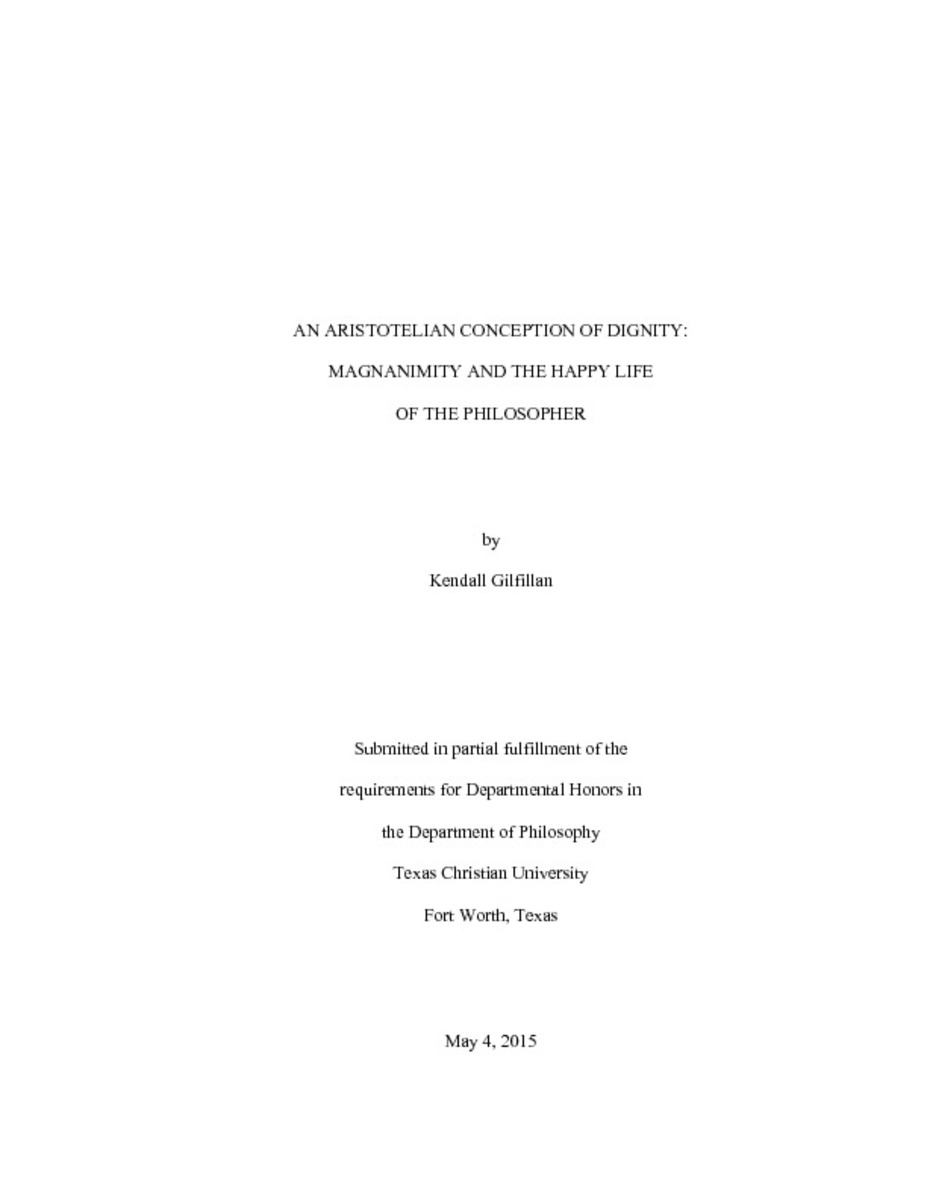An Aristotelian Conception of Dignity: Magnanimity and the Happy Life of the PhilosopherShow full item record
| Title | An Aristotelian Conception of Dignity: Magnanimity and the Happy Life of the Philosopher |
|---|---|
| Author | Gilfillan, Kendall |
| Date | 2015 |
| Abstract | The contemporary global conversation concerning human rights is centered around the concept of inherent human dignity. Because we lack an adequate justification for a concept of inherent worth that is capable of transcending national, generational, and religious barriers, however, cross-cultural progress in the realm of human rights is stifled. This paper serves as the initial phase of a project motivated by the desire to provide an in-depth historical analysis of the conceptual development of dignity through philosophical thought in response to the current lack of a justification for human being's inherent possession of dignity. Providing an interpretation of an Aristotelian conception of dignity, this paper presents a cohesive account constructed through the lens of magnanimity and the most final good in Aristotle's Nicomachean Ethics. Whereas magnanimity has historically received negative attention from philosophers, I herein argue that magnanimity is something more closely related to the most final good in Aristotle's account. Moreover, because dignity as proper consideration of others is necessitated by magnanimity as proper consideration of self, dignity also plays an integral role in Aristotle's ethics. Through making possible the elevated virtue of magnanimity and undergirding the remaining moral virtues, dignity for Aristotle is something both instrumental and valuable. |
| Link | https://repository.tcu.edu/handle/116099117/10334 |
| Department | Philosophy |
| Advisor | Heister, Blake |
| Additional Date(s) | 2015-05-01 |
Files in this item
This item appears in the following Collection(s)
- Undergraduate Honors Papers [1463]
© TCU Library 2015 | Contact Special Collections |
HTML Sitemap



